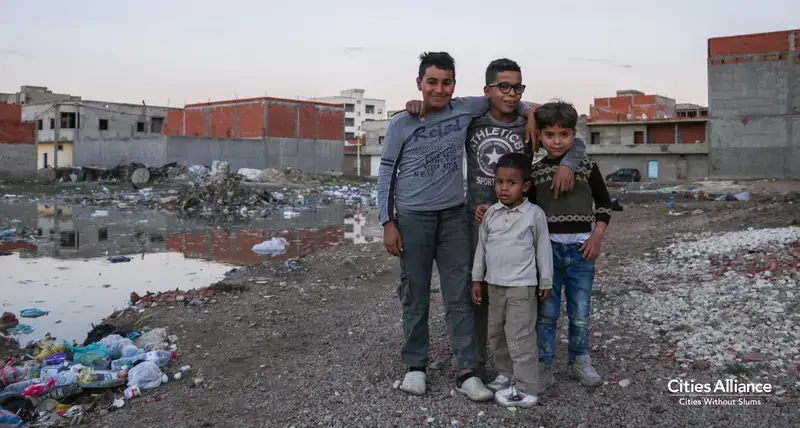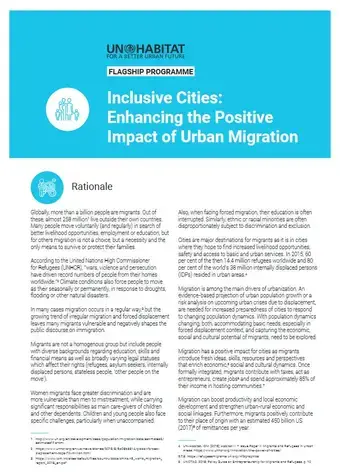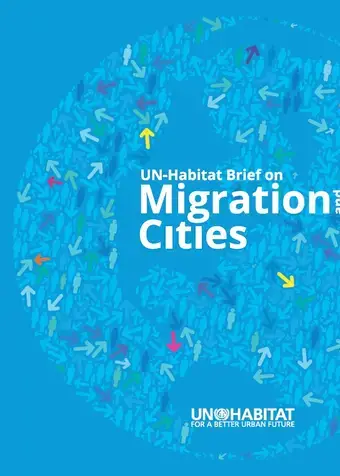The challenge
Migration is at the core of urbanization, and while today cities are home to 54 percent of the world’s population, by 2050 this number is expected to rise to 66 percent. The total number of international migrants in 2020 was estimated at 280.6 million. A total of 89.3 million were forcibly displaced due to conflict and violence in several regions and countries in 2021. In May 2022, UNHCR announced that the number of people forced to flee their home had reached more than 100 million for the first time on record.
Migration to cities occurs for a variety of factors such as conflict, impact of environmental degradation and climate change, poverty, lack of (employment) opportunities and (spatial) inequalities. Climate change is driving displacement and increasing the vulnerability of those already forced to flee as a result of extreme weather events, flooding, heat and droughts in addition to general environmental degradation.
About the Flagship
UN-Habitat's Flagship Programme “Inclusive Cities: Enhancing the Positive Impacts of Urban Migration” aims at supporting local and national authorities to create inclusive and non-discriminatory urban environments for all people, especially in situations where a rapid influx of people has led to an urban crisis.
Urban migration, when well-planned and well-managed, has a positive impact on cities and communities, but non-discriminatory policies and systems must be in place that are responsive to population changes and ensure the rights of adequate standards of living for all urban dwellers. Only by linking humanitarian and development efforts can those positive impacts be achieved in the long-run in forced displacement and urban crisis contexts.
The Programme targets countries and cities in need of UN-Habitat’s expertise for area-based development, especially in the complex urban and urbanising contexts which UN-Habitat is specialised in. UN-Habitat’s services come with its strong focus on promoting participation and social cohesion and the protection of Human Rights for all. Each programme activity will support countries to advance the United Nations 2030 Development Agenda commitment of Leaving No One Behind.
Our Work
City leaders face tough decisions and pressure as they confront issues related to urban migration. International organizations, Non-Governmental Organizations (NGOs), Civil Society Organizations (CSOs) and other actors supporting cities in tackling migration issues have to build a strong understanding of the (complex) local urban context. UN-Habitat promotes area-based and evidence-based approaches to better inform integrated and inclusive solutions for urban migrants and displaced people.
Flagship Programme 4 fosters enhanced capacities at local, regional, national and global levels to collect and analyze data on urban migration and to advance evidence-based research on the impact of migration and displacement on urbanization. This approach will support UN-Habitat’s efforts to develop normative guidance to inform its operational responses to urban migration, in line with the Humanitarian-Development-Peace Nexus.
Partners and Beneficiaries
Target group: National and local authorities, civil society, academia, private sector.
Beneficiaries: Representatives of migrant communities, women and youth.
Partners: IOM, UNHCR, UNDP, UNICEF, the World Bank, among others.
Global Networks: GP2.0, UN Network on migration, KNOMAD, Global Alliance on Urban Crises, among others.











